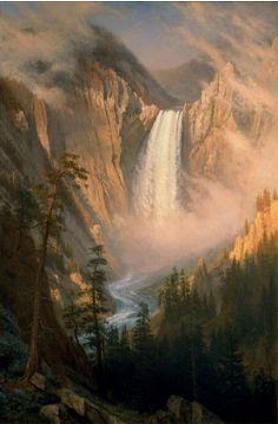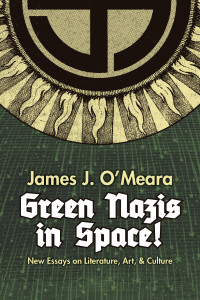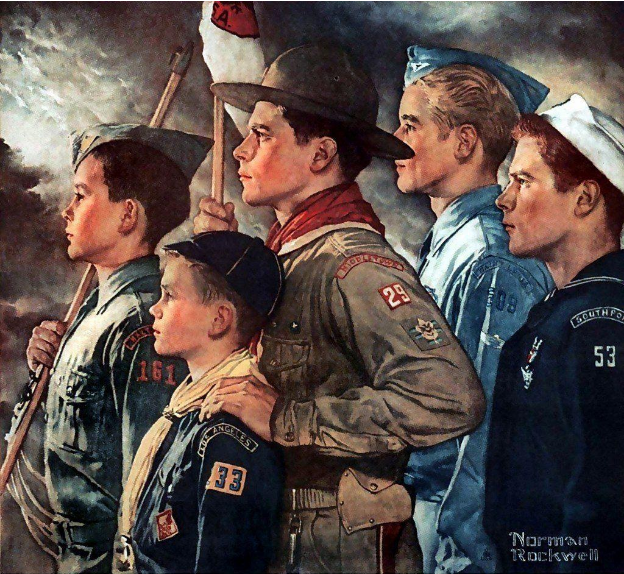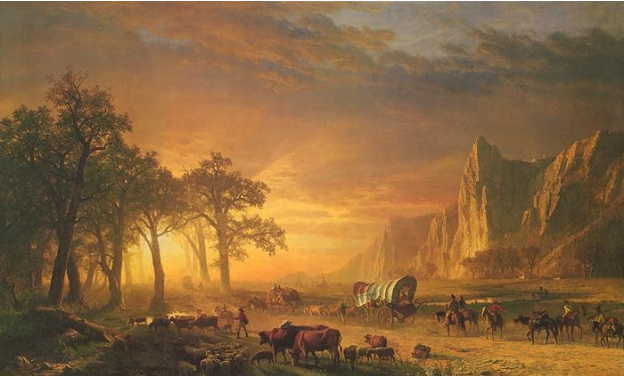3,121 words
Despite their many social ills, one might judge the decades prior to World War I to be the last period of sanity in the West. It was truly the last epoch in American history in which the values of old Europe still held any sway, when criticism of modernity by men of the Right still exerted some influence, and when ancestral traditions of dignity and civic responsibility were still in force among the old families. It was a time when anxieties about the rising power of the underclass and the preservation of America’s political, cultural, and natural heritage were paramount. Decadence had already set in, to be sure, but the old WASP elite still retained the power and will to enforce its traditional values.
The contemporary Rightist will likely have some identification with these turn-of-the-century WASPs, viewing with horror the rise in vulgarity, decadence, ethnic chaos, and crime, struggling to preserve the heritage of his ancestors against the dismal tide — but fearing, in his darkest hours, that such efforts are in vain. After the premoderns, he will likely feel most at home intellectually among the pessimists, vitalists, and existentialists of the fin de siècle, who were disgusted by the spectacles of consumerism and mass democracy, the contemporary loss of vigor and faith, the gleeful acceptance of “race suicide”: in short, the rising domination of Nietzsche’s last man.
This old WASP ethos and its critique of modernity is still eminently applicable to the contemporary situation. It represents the last gap of sanity in the West before the utter destruction of all social standards wrought by two world wars and the growth of the counter-culture.
Nowadays many of these turn-of-the-century WASP elites, such as the Mugwumps, are considered harbingers of the Progressive Era and are seen as complicit in its sins, setting the stage for the New Deal and the modern managerial state. This is true in several respects, but ignores the motivation behind many of these WASP-led causes, many of which (civil service reform, trust-busting, prohibitionism, conservationism, eugenics) were aristocratic reactions against the plebeian, immoral, avaricious ethos of the Gilded Age. Many of these elites were driven by a nostalgia for an idealized past — the New England town meetings, the Southern plantations, the pioneer ethos — and wary of the future in which their traditional society would be overturned by political corruption, immigration, and vulgarity.
Despite its contemporary Leftist connotations, in its early years, the conservation and wilderness preservation movement was led primarily by the remnants of America’s WASP elite. As Stephen Fox writes in his account of the origins of conservationism,
“The avocational phase in [conservationism’s] tone and class aspects duplicated the origins of progressivism: moralistic, evangelical, ethnically nativist if not racist, wealthy, and offended by the corruptions of politics. Antimodern and skeptical of technological progress, it invoked a vision of the pre-industrial community when people lived closer to the land and the natural rhythms of life. . .” [1]
This tendency had many manifestations. In urban areas, there was a growing interest in parks, zoos, natural history museums, and naturalist studies in schools, as well as a rise in sociological critiques of urban life in general. There was a concomitant rise in agrarianism and an idealization of the frontier and pioneer spirit, giving birth to “back-to-the-land” movements and scouting organizations dedicated to teaching deracinated urban youth about navigation and woodcraft. One of the greatest and most enduring legacies of this era was the beginnings of the wilderness preservation movement, which was entirely spearheaded in its early years by upper- or upper-middle-class WASPS. The most prominent among these were John Muir, Madison Grant, Henry Fairfield Osborn, Charles M. Goethe, Joseph Le Conte, Theodore Roosevelt, Sigurd Olsen, Robert Marshall, and Aldo Leopold.
Fine studies of some of these individuals have already been published on this website here, here, and here, so the purpose of this article is, rather, to examine the themes of early WASP conservationism and chart its decline.
Aristocratic Values
Early conservationism was motivated, in large part, by an aristocratic impulse to preserve the aesthetic and spiritual values of wilderness. The spiritual dimension was emphasized by writers such as Emerson and Muir, who regarded “unspoiled” (uncultivated and undomesticated) nature as more reflective of God’s handiwork, and therefore of a higher order than the merely manmade. There was often a conscious or unconscious Neoplatonism at play here, which regarded the natural world as an emanation of God and therefore imbued with higher spiritual significance.

Additionally, in early conservation one finds certain parallels to America’s old-time Calvinist religion: these include a fixation on the “fall of man” from a state of primordial purity, distrust of modern urban-industrial civilization, condemnation of greed, and a vaguely apocalyptic tone [2]. Nor is the line linking wilderness preservation to ancestral Puritanism a purely thematic one. Among the many environmental leaders raised in the Presbyterian afterglows of the Calvinist faith (including John Muir, Rachel Carson, David Brower, and Edward Abbey) can be included alongside Earth First! cofounder and ecowarrior par excellence Dave Foreman.
Even those WASPS who were not religious nevertheless were strongly aesthetic in outlook and upheld wilderness as an antidote to the crassness and frenetic pace of modern civilization, a tonic for deracinated urban denizens. Many early conservationists were inspired by personal experiences of wilderness, in which they found a solitude, independence, and beauty that was rapidly disappearing from society, and hence sought to preserve the wild as a bastion of aristocratic values in a vulgar democratic age.
This was the same impulse, not coincidentally, that motivated the WASP’s opposition to “race suicide” and efforts on behalf of eugenics, nativism, political reformism, and historical preservationism. They saw their own race, class, and state as under attack by the crass materialism and ethnic chaos of the contemporary age, much as the noble wildlife and landscapes were under attack by short-sighted business interests. And this was not a loss they would take lightly. As the New York Times wrote in its obituary for Madison Grant,
“The preservation of the redwoods, of the bison, of the Alaskan caribou, of the bald eagle. . . of the spirit of the early American colonist. . . and of the purity of the ‘Nordic’ type of humanity in this country, were all his personal concerns, all products of the same urge in him to save precious things.” [3]
In their work on behalf of racial conservation and improvement, as well as the preservation of the American wilderness, these early WASP conservationists were motivated by an aristocratic desire to preserve the wilds as an aesthetic and spiritual sanctuary against what is commonly called “progress.” Theirs was an uphill battle, as the promotion of aristocratic values in a democratic society always has been. But there was nevertheless a time when such an elite existed and still had the power to exert its will.
Pioneer Virtues
In addition to its aesthetic and spiritual value, early WASP conservationists lionized the wilderness as the last remaining arena for the exercise of America’s ancestral pioneer virtues. The closing of the frontier and the urbanization of the population had led to widespread decadence and decline in the traditionally American, Anglo-Saxon qualities — the strength, rugged independence, and courage that had conquered the continent (and which, ironically, made this decadent civilization possible, a fact not lost on these theorists).

You can buy James O’Meara’s book Green Nazis in Space! here.
This attitude towards wilderness was famously held by President Theodore Roosevelt, who exalted the strenuous life and was plagued by fears of national weakness and race suicide. He was one of the founding members of the elite Boone and Crockett Club in 1887, the earliest conservation organization in the country, which was dedicated to “manly sport with rifle.” It was focused in part on the study and preservation of wildlife, but its overriding concern appeared to be conserving the wilderness as a kind of aristocratic game preserve, holding the unsportsmanlike activities of poachers and industrial land barons in contempt. According to Gary Brechin, “Members of the Club became key players in the American Museum of Natural History, New York Zoological Park (Bronx Zoo), and San Francisco’s Save-The-Redwoods League, as well as eugenics and immigration restriction movements.” [4]
In addition to Roosevelt, one of the greatest proponents of wilderness as an arena for testing the masculine virtues was Sigurd Olson. In his strongest statement on this subject, “Why Wilderness?” (1938), he lamented that the rapid urbanization of the last century had wrought chaos on the mind of contemporary man, who beneath his newly-civilized veneer still desired for “simple, primitive tasks and ordinary life in the open,” as well as struggle against the elements:
And when we think of the comparatively short time that we have been living and working as we do now, when we recall that many of us are hardly a generation removed from the soil, and that a scant few thousand years ago our ancestors roamed and hunted the fastnesses of Europe, it is not strange that the smell of woodsmoke and the lure of the primitive is with us yet. Racial memory is a tenacious thing, and for some it is always easy to slip back into the deep grooves of the past. What we feel most deeply are those things which as a race we have been doing the longest, and the hunger men feel for the wilds and a roving life is natural evidence of the need of repeating a plan of existence that for untold centuries was common practice. It is still in our blood and many more centuries must pass before we lose much of its hold.
Sounding rather like Julius Evola, Olson argued that for such men, who possess a “torturing hunger for action, distance and solitude,” the only types of experiences that can satisfy them would be “the way of wilderness or the way of war.” In a world that had become more commercial and pacified, testing oneself against the elements offered, in William James’ phrase, a “moral alternative to war,” in order to cultivate traits of courage, discipline, and endurance that had fallen out of fashion.

Scouting organizations arose throughout the Western world during the first decade of the twentieth century, motivated in part by similar fears of urban decadence. Their aim was to get young men into the wilderness to test their mettle against the elements, and to enjoy the benefits of male camaraderie while learning traditional pioneer and martial skills. Such organizations were often vaguely religious in tenor (until quite recently) and also vehicles of cultural values such as nationalism and historical preservationism, discussed below. Their ultimate aim was the inculcation of patriotism, martial valor, and rugged masculinity in the scouts themselves, in an age when these virtues were becoming rare and anachronistic.
Naturally, these sentiments are condemned by the current environmental establishment as vaguely fascistic and patriarchal. The figures who promoted them are either whitewashed or expunged altogether. Nevertheless, it remains a compelling justification for wilderness preservation, and one that might make it more agreeable to traditionally conservative Americans who might regard wilderness preservation as the domain of hippies and urban liberals.
The American Heritage
The third motivation for WASP conservationism was its cultural dimension. Wilderness was considered to be intimately bound up with the national character, the authentically American heritage. America was born out of continued contact with the wilderness, with settlers and pioneers struggling to carve a living out of a rugged country. Granted, this relationship was often adversarial, but it nevertheless inculcated the essential American virtues of rugged independence and self-reliance, and it is difficult to believe that the people who kept settled the mountains and forests of the continent were totally immune to their beauty. Like the New World as a whole, wilderness represented a refuge from the overcrowded, ossified, decadent society of early modern Europe. With the closing of the frontier and the bringing of all wild country under the dominion of man, early conservationists feared that these virtues would be lost forever.

Moreover, for the early twentieth century Nordicist or Anglo-Saxon enthusiast, wilderness and ruralism preserved of an environment in which their people thrived, as compared to the urban industrial mass society in which the nobler races tend to diminish. The dark forests and rugged mountains of American wilderness are reminiscent of the northern European forests, where Nordic man evolved his strength, mastery, and chivalric ethos. There was an undeniably Faustian element to these associations. It was also unabashedly racialist, as the new immigrants to the country seemed uniquely adapted to thrive in the factories and crowded cities, while the country’s original settlers were more suited to agriculture and the frontier. Thus the purity of the wilds, the nobility of farm work and hunting, would be contrasted with the degeneracy of the big cities by these early proponents. Fox writes:
“The old WASP gentry, the same class that invented conservation, felt besieged by the new groups. By recalling America as it was, or as it was imagined, and by calling forth the sturdy pioneer values now seemingly passing on to the aliens, conservation offered psychic release from the new tensions. Conservation seemed clean, efficient, invoking a vision of rushing streams and fragrant forests and cultural homogeneity, all in sharp contrast to the redolent immigrant districts of most cities.” [5]
Early conservationists also believed that a knowledge of natural law, derived from wilderness experience and other forms of natural education, would lead people to support a polity ordered according to such laws. Henry Fairfield Osborn — paleontologist, geologist, conservationist, and President of the American Museum of Natural History — wrote that “nature teaches law and order and respect for property. If these people [the masses] cannot go to the country, then the Museum must bring nature to the city.” [6]
Though perhaps never explicitly stated, for many of these WASP reactionaries the wilderness represented an authentically American national heritage, in a country which otherwise lacked any ancient institutions to speak of. The European Right has its hereditary monarchy, its aristocracy, its throne and altar, its autochthonous Volk; we have no such ancient institutions in these United States. What we have is one of the most well-preserved, varied, and magnificent wilderness on earth, still teeming with some of the most beautiful species ever observed by man; our heroes are the settlers and pioneers and cowboys and frontiersman whose direct encounter with this wilderness made our settler civilization possible. The war on wilderness, past and present, is, therefore, a war on America’s heritage, something which the WASP conservationists realized early on.
Decline of WASP Conservation
Until the mid-1960s, conservation was ethnically a WASP preserve, indeed one of the most ethnically and socially restricted reform movements in American history. While this narrowness might have discouraged some potential allies, it also contributed to early conservation’s stability and cohesion. Their early successes are all the more remarkable in that most conservationists were amateurs and volunteers, rather than the professional lobbyists who dominate the movement today.
In the mid-20th century, this began to change. One reason for this is the peculiar character of the White Anglo-Saxon Protestant himself. As outlined very convincingly in Andrew Fraser’s The WASP Question, for various cultural and genetic reasons the Anglo-American has a strong tendency towards individualism and religious fanaticism that leads him to disdain communal concerns. He regards ethnic solidarity as “beneath” him and will eagerly sacrifice such interests for the sake of personal advantage or virtue signaling – a trait that has been exploited to great advantage by contemporary grievance mongers and ancient racial enemies. Thus, the self-aware, tribal Anglo-American of yore disappeared after the world wars, and his heirs ceded the leadership of conservationism to other interests.

You can buy Greg Johnson’s The White Nationalist Manifesto here
As new forces entered the movement, its focus shifted. The elite conservation movement of Thoreau, Muir, Leopold, Roosevelt, Grant, Foreman, and Marshal was fundamentally a product of Anglo-American Protestantism; this is readily seen in its emphasis on outdoor experience, individualism, personal and social purity, and pessimism concerning the civilized world. In the 1960s there was a merger of the conservationist and anti-pollution movements — two movements with quite different focuses and clientele — giving birth to the contemporary environmental movement. As more minorities and urban denizens came into the fold, the focus turned to human health and wellness, rather than the distant and elitist wilderness, which has lately been criticized as a mythical vestige of romanticism. Urban professors took over the intellectual leadership of the movement, making it a vessel for the critique of capitalism and the patriarchy. Finally, the strongly amateur-led movement of yesteryear has disappeared, and the environmental scene is now dominated by a panoply of tax-exempt organizations and thinks tanks, all headquartered out of D.C. or San Francisco, with employees who have likely never gone hunting, camping, fishing, or hiking. All of them almost certainly hold the same opinions which one would expect of their class and milieu. Thus has our noble national heritage been corrupted into yet another cudgel with which to attack traditional social values.
The key distinction to be made between turn-of-the-century WASP preservationism and the later “environmentalist” movement is that the former is fundamentally anti-modern — or, rather, counter-modern — in orientation. It offers an alternative vision of society; one which is more in line with the organic and traditional societies of old Europe, which emphasizes aristocratic virtues, ethnic homogeneity, and values transcending materialism. Indeed, due to its spiritual emphasis and essentially American character, this old WASP preservationism represents the most viable Rightist version of ecology, with the possible exception of the National Socialist variant (which is more avowedly biological and Darwinian in focus).
How shall we honor these pioneers? By maintaining their ethos and traditions in the present day — which in reality is not so different from the Gilded Age in which they emerged. First, to maintain our essential dignity, cultivation, and stoicism, which are our greatest possessions and cannot be taken by anyone. Secondly, to fight against the chaos of the present in favor of order, and to defend ourselves, our people, and our heritage against the onslaught of hostile forces. It was perhaps inevitable that this class and its values would be subsumed beneath the nigh-unstoppable tide of contemporary Leftism.
However, they left us one remarkable and hopefully enduring gift: the legacy of the American wilderness.
Notes
[1] Stephen Fox, John Muir and His Legacy: The American Conservation Movement (Boston: Little, Brown and Company, 1981), 108.
[2] Robert H. Nelson, The New Holy Wars: Economic Religion vs. Environmental Regulation in Contemporary America (University Park, PA: Pennsylvania State University Press, 2010), 114.
[3] Miles A. Powell, Vanishing America: Species Extinction, Racial Peril, and the Origins of Conservation (Cambridge: Harvard University Press, 2016), p. 104.
[4] Gary Brechin, “Conserving the Race: Natural Aristocracies, Eugenics, and the U.S. Conservation Movement,” Antipode (July 1996).
[5] Fox, John Muir, 347.
[6] Brechin, “Conserving.”
Enjoyed this article?
Be the first to leave a tip in the jar!
Related
-
Earth Day Special
-
Geheime Aristokratien
-
Pour Dieu et le Roi!
-
Introducing a Reactionary Aphorist
-
Counter-Currents Radio Podcast No. 576: Greg Johnson & Morgoth on Dune: Part Two
-
Mysticism as the Path to Political and Social Change: The Aristocratic Radicalism of Mystics and Occult Thinkers
-
Nueva Derecha vs. Vieja Derecha, Capítulo 17: Notas Sobre el Populismo, el Elitismo y la Democracia
-
Saint Che’s Guide to Asymmetric Warfare, Part 2
8 comments
Is it really wilderness we like? It’s more just having room on at least one side of our holdings. I grew up on a plot with two sides being forest. It must have molded me somehow. I played in the woods and even blamed them once, when I broke a garage window with an arrow. I told my parents the “boys in the woods” did it. I truly thought there were wild bands of children who lived in the woods, like Robin Hood’s merry men, and that I could hear them at night, when what I really heard was raccoons and cats.
Wilderness is great, don’t get me wrong, but it’s more important just to have undeveloped, “waste” land where youth can go to … do whatever.
When i was a boy we had a fort in the swamp. There was a little hill in the swamp that we fortified with first sticks, then logs. We build a little dike and a log way and made campfires. Over a decade later when i came back, i noticed that the entire swamp was just the result of a clearing made for high power electricity pylons that were so huge that i didn’t even notice their overhead power lines when i was a child. The place instantly lost its magic.
Enough with the damned deconstruction.
As Headly Lamar would say, “No… Too Jewish”
The Nature Park Project of the Progressives was the first time when snobbish urbanide elites told the men of the wilderness how to live because the urbanides liked the back then equivalent of pretty desktop background pictures. The occuring forest fires in the united states, the crown fires to be more exact, are a direct result of that naive idea of untouched wilderness.
Lamenting our bygone days is a waste of our time. Engage in white flight; make white babies; and wait for nature to extract her revenge (virus?). Our racial inheritance is the only thing that matters – and strong white families are the only thing that can save us. If it is good for whites families – then it is a virtue. If it is bad for white families – then it is a sin. Simple.
Great article!
Interesting article. I am interested in reading some of the works written by the old conservationists mentioned, anyone have recommendations? Emerson a good spot to start?
Thank you for this very informative overview of the conservation movement in America. There is a book on the history of its German and British equivalent that is very rich and illuminating: “Ecology in the 20th Century: A History,” by Anna Bramwell. She also authored a good book on the movement in the NS-Zeit: “Blood and Soil: Walter Darre and Hitler’s Green Party.”
Comments are closed.
If you have Paywall access,
simply login first to see your comment auto-approved.
Note on comments privacy & moderation
Your email is never published nor shared.
Comments are moderated. If you don't see your comment, please be patient. If approved, it will appear here soon. Do not post your comment a second time.
Paywall Access
Lost your password?Edit your comment